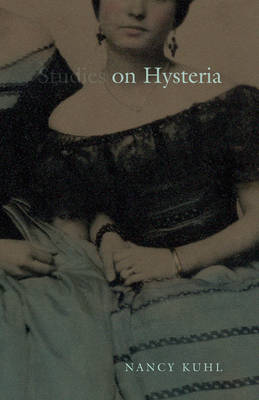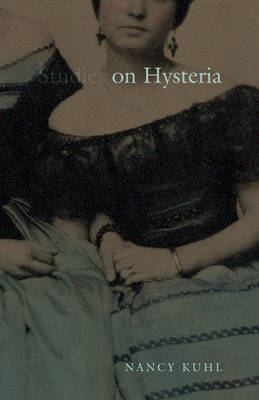
- Retrait gratuit dans votre magasin Club
- 7.000.000 titres dans notre catalogue
- Payer en toute sécurité
- Toujours un magasin près de chez vous
- Retrait gratuit dans votre magasin Club
- 7.000.000 titres dans notre catalogue
- Payer en toute sécurité
- Toujours un magasin près de chez vous
Description
ON HYSTERIA is a lyric engagement of voice, memory, longing, and the fraught ways we speak ourselves. In conversation--and sometimes conflict--with Sigmund Freud's foundational text of psychoanalysis Studies on Hysteria (1895), Kuhl reframes the discourse surrounding cases of so-called hysterical girls and women, expanding and shifting given narratives.
ON HYSTERIA, Nancy Kuhl's fourth collection of poems, is a lyric engagement of voice, memory, longing, and the fraught ways we speak ourselves. In conversation--and sometimes conflict--with Sigmund Freud's foundational text of psychoanalysis Studies on Hysteria (1895), Kuhl reframes the discourse surrounding cases of so-called hysterical girls and women, expanding and shifting given narratives. With intensity and emotion, ON HYSTERIA examines how ideas may be converted into physical symptoms, thought collapsed into sensation, articulation fused with forceful action. Above all, Kuhl's poems consider ways suffering itself becomes unbounded expression: Her pain is a voice / pulled by handfuls / from the throat.
The spare poems in Nancy Kuhl's ON HYSTERIA are--to use a term central to the collection--glossed with disquiet, shifting between direct speech and a kind of pressurized, violent speechlessness. 'This family, this suburban dead-end / family--they use silence like a rope.' The primary drive here is not to fix or resolve, not to tell; rather, it is to approximate the experience of piecing together 'broken, unknowable / things, ' to survive and make some meaning out of 'spectacular panic, ' the precise cause of which is never directly named but pulses throughout. The quiet haunted authority of these lines derives from 'the memory of events witnessed while sleepwalking.' With guarded intimacy, the poems convey--'in a language / half-heard, // half-hearted'--an 'ephemeral revelation' where 'confusion can also be a certainty.' Reading this collection is like watching half-salvaged clips of a family's home movie interspersed with time-lapse photos capturing the formation and dissolution of rocks: the spliced film is riveting, a 'horizon set down between / limit and limitlessness'--Catherine Barnett, author of Human Hours
From the movement of rivers and tides to rooms flooded 'with unremarkable light, ' something profound, elusive, and shattering haunts these poems. In this work, a kind of 'field guide' to the soul, an extraordinary sensibility moves delicately yet searchingly through the holdfasts of mind, memory, and touch. One encounters in these simultaneously lush and spare poems an enormously pressurized linguistic intelligence moving into moving through experience.' Brilliantly and complicatedly engaged with psychoanalytic discourse on hysteria, Kuhl's poems unforgettably and unparaphrasably conjure the atmosphere of a corroded family complex--let us not say romance. Kuhl's poems emerge out of liminal zones and track 'what comes up through layers. And everywhere too we encounter a poet alive to rocks, stones, trees, lichens, mosses, to the texture of fabrics and the structures of art, to the 'sky open to the hinge, ' to 'the brink, the joint, the skim, the skin.' This is vital, unsettling, transformative work.--Maureen N. McLane, author of More Anon: Selected Poems
Making poetry and psychoanalysis seem of a piece, Kuhl manages in this remarkable and unusual book to write poems at once poignant, incisive and lyrical about experiences that are uncanny in their ordinariness.--Adam Phillips, author of Becoming Freud
Poetry. Women's Studies.
Spécifications
Parties prenantes
- Auteur(s) :
- Editeur:
Contenu
- Nombre de pages :
- 84
- Langue:
- Anglais
Caractéristiques
- EAN:
- 9781848618374
- Date de parution :
- 22-07-22
- Format:
- Livre broché
- Format numérique:
- Trade paperback (VS)
- Dimensions :
- 140 mm x 216 mm
- Poids :
- 113 g







